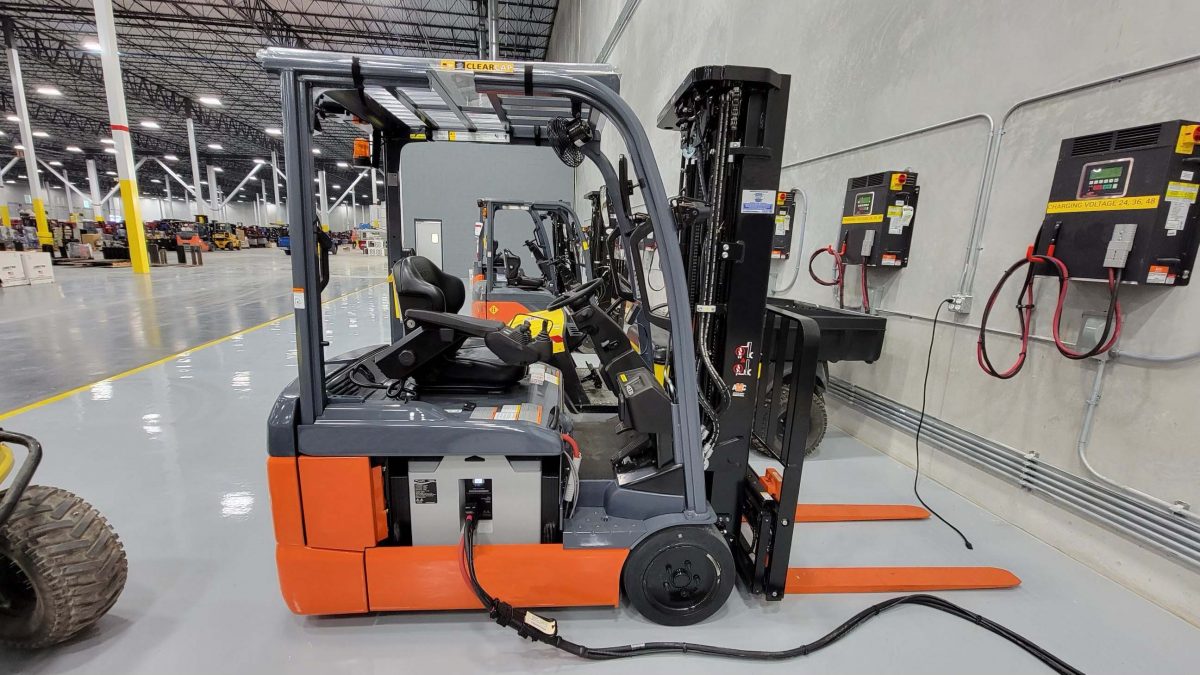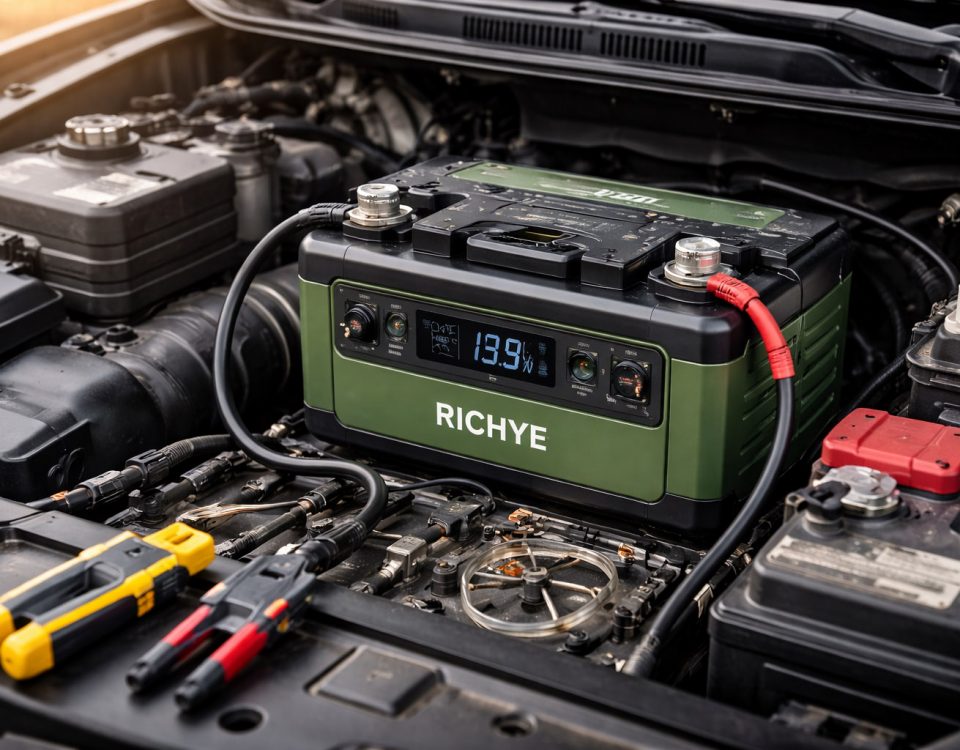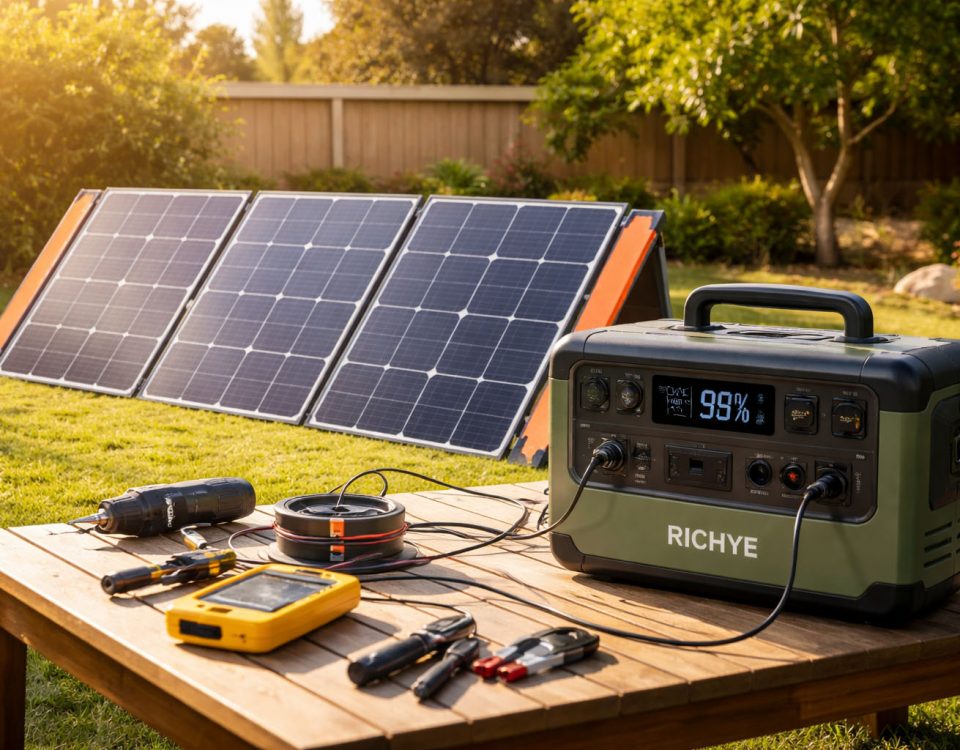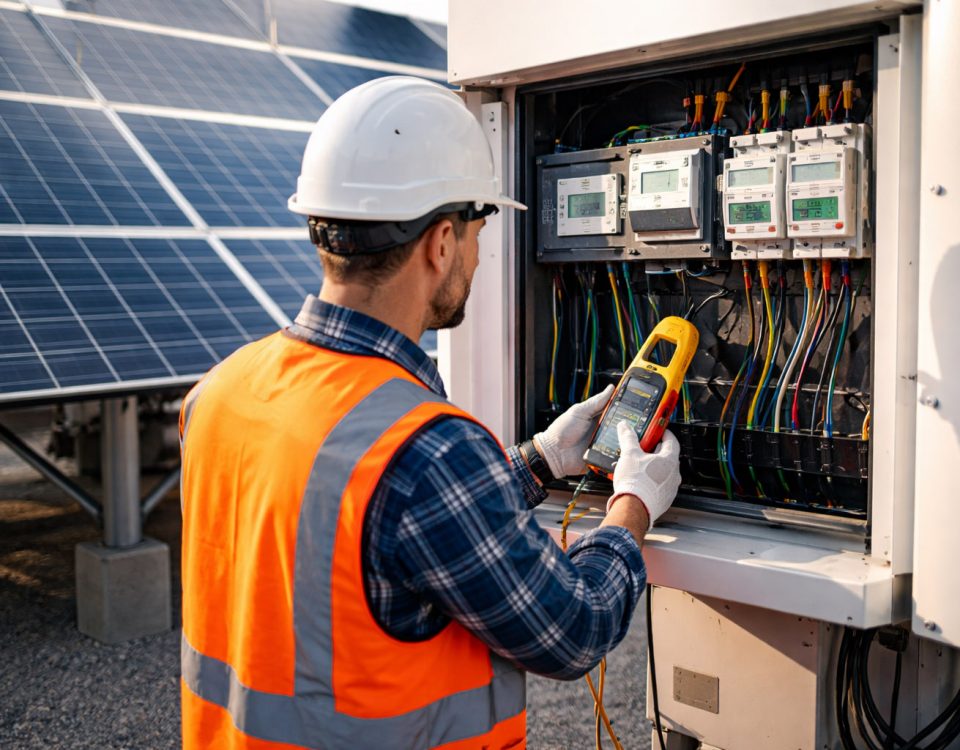W dzisiejszych szybko rozwijających się branżach logistyki i transportu materiałów wydajność operacyjna ma kluczowe znaczenie. Wózki widłowe, które są podstawą operacji w magazynach i centrach dystrybucji, w dużej mierze polegają na akumulatorach. Wraz z rosnącym zapotrzebowaniem na czas pracy bez przestojów i szybkie czasy realizacji, technologia ładowania akumulatorów wózków widłowych odnotowała znaczny postęp. Jedną z takich innowacji jest technologia szybkiego ładowaniaktóra obiecuje skrócić czas przestojów i zapewnić płynność operacji. Jednakże, jak w przypadku każdej nowej technologii, wiąże się ona z własnym zestawem zalet i wyzwań. W tym artykule omówiono różnice między szybkie ładowanie oraz standardowe ładowanie dla akumulatorów do wózków widłowych i omawia wpływ technologii szybkiego ładowania na wydajność akumulatora.
Zrozumienie ładowania akumulatorów wózków widłowych: Ładowanie standardowe a szybkie
Standardowe ładowanie
Standard akumulator do wózka widłowego to tradycyjna metoda, w której akumulatory są ładowane powoli przez dłuższy czas. Proces ten trwa zwykle od 6 do 8 godzin, w zależności od rozmiaru baterii i używanej ładowarki. Standardowe ładowanie często odbywa się w nocy, dzięki czemu wózek widłowy jest gotowy do użycia następnego dnia. Główną zaletą standardowego ładowania jest to, że jest ono łagodne dla akumulatora, pozwalając na pełne naładowanie bez nadmiernego obciążania ogniw.
Jeśli chodzi o schematy ładowania, proces ładowania obejmuje fazę stałego prądu, po której następuje faza stałego napięcia. To wolniejsze podejście zapewnia, że akumulator jest w pełni naładowany, osiągając pojemność około 100% bez znaczącego obciążenia ogniw akumulatora. W rezultacie akumulatory kwasowo-ołowiowe i litowo-jonowe korzystają z dłuższej żywotności w standardowym cyklu ładowania.
Szybkie ładowanie
Z kolei szybkie ładowanie, jak sama nazwa wskazuje, zapewnia znacznie szybsze ładowanie akumulatora wózka widłowego. W zależności od akumulatora i ładowarki, szybkie ładowanie może trwać od 1 do 3 godzin. Jest to szczególnie korzystne w środowiskach, w których wózki widłowe są w ciągłym użyciu i muszą działać tak szybko, jak to możliwe.
Technologia szybkiego ładowania działa poprzez dostarczanie wyższego prądu do akumulatora, przyspieszając proces ładowania. Jednak ten zwiększony prąd może generować więcej ciepła, co może być szkodliwe dla zdrowia baterii, jeśli nie jest starannie zarządzane. Nowoczesne szybkie ładowarki są wyposażone w zaawansowane systemy chłodzenia, które zapobiegają nadmiernemu gromadzeniu się ciepła podczas procesu ładowania. Ładowarki te są również zaprojektowane tak, aby regulować przepływ energii w celu uniknięcia uszkodzenia wewnętrznych elementów akumulatora.
Wpływ szybkiego ładowania na wydajność baterii
Podczas gdy szybkie ładowanie oferuje niezaprzeczalne korzyści w postaci skrócenia czasu przestojów, budzi ono również pewne obawy dotyczące długoterminowego wpływu na zdrowie i wydajność akumulatora. Aby lepiej zrozumieć te skutki, należy rozważyć, w jaki sposób szybkie ładowanie wpływa na różne aspekty akumulatora wózka widłowego.
Wytwarzanie ciepła i jego wpływ na żywotność baterii
Jedną z głównych obaw związanych z szybkim ładowaniem jest dodatkowe ciepło, które generuje. Ciepło jest jedną z głównych przyczyn degradacji baterii w czasie. Gdy akumulator jest ładowany w szybszym tempie, reakcje chemiczne wewnątrz ogniw generują więcej ciepła. Jeśli ciepło to nie jest skutecznie odprowadzane, może spowodować wzrost wewnętrznej temperatury akumulatora, prowadząc do potencjalnego niekontrolowanego wzrostu temperatury - stanu, w którym akumulator staje się niestabilny, a nawet może się zapalić.
Jednak wraz z rozwojem technologii akumulatorów, zwłaszcza litowo-jonowych, systemy szybkiego ładowania obejmują obecnie mechanizmy takie jak chłodzenie cieczą lub powietrzem, aby skutecznie zarządzać wzrostem temperatury. Pomaga to ograniczyć ryzyko uszkodzeń związanych z wysoką temperaturą. Z kolei akumulatory kwasowo-ołowiowe są generalnie bardziej wrażliwe na ciepło, co czyni je mniej odpowiednimi do szybkiego ładowania.
Wpływ na żywotność baterii
Im szybciej akumulator jest ładowany, tym bardziej obciążane są jego wewnętrzne komponenty, co może skutkować krótszą ogólną żywotnością. W szczególności, szybkie ładowanie może przyspieszyć procesy takie jak rozpad elektrolitu, prowadząc z czasem do zmniejszenia pojemności akumulatora. Może to być szczególnie prawdziwe w przypadku akumulatorów kwasowo-ołowiowych, które są bardziej podatne na niekorzystne skutki szybkiego ładowania w porównaniu z nowszymi akumulatorami litowo-jonowymi.
Akumulatory litowo-jonowe radzą sobie z szybkim ładowaniem wydajniej niż akumulatory kwasowo-ołowiowe. Przy zastosowaniu odpowiednich systemów zarządzania, akumulatory litowo-jonowe mogą utrzymać stosunkowo długi cykl życia nawet przy szybkim ładowaniu. Należy jednak pamiętać, że częste szybkie ładowanie może nadal powodować stopniowy spadek pojemności, dlatego zawsze zaleca się zrównoważenie szybkiego ładowania z okazjonalnymi standardowymi cyklami ładowania w celu zapewnienia optymalnego stanu baterii.
Wydajność ładowania i redukcja przestojów
Jedną z najbardziej oczywistych zalet szybkiego ładowania jest redukcja przestojów. Wózki widłowe w środowiskach takich jak magazyny, centra dystrybucyjne i zakłady produkcyjne często wymagają ciągłej pracy przez cały dzień. Dzięki szybkiemu ładowaniu wózki widłowe mogą być ładowane podczas przerw lub przestojów, zmniejszając potrzebę pozostawiania sprzętu bezczynnego przez dłuższy czas. Zapewnia to, że wózki widłowe są dostępne do użytku przez cały czas, zwiększając produktywność i wydajność operacyjną.
W przypadku firm, które korzystają z floty wózków widłowych, szybkie ładowanie zapewnia elastyczność umożliwiającą łatwiejszą wymianę akumulatorów i szybkie przywrócenie sprzętu do pracy. Jest to szczególnie cenne dla firm z wieloma zmianami lub operacjami o dużym zapotrzebowaniu, które wymagają ciągłego przenoszenia materiałów.
Systemy zarządzania akumulatorami (BMS) i kwestie bezpieczeństwa
Systemy zarządzania akumulatorami (BMS) odgrywają kluczową rolę w bezpiecznym i wydajnym działaniu zarówno standardowych, jak i szybko ładowanych akumulatorów do wózków widłowych. System BMS monitoruje kluczowe parametry, takie jak napięcie, temperatura i stan naładowania, aby zapobiec przeładowaniu, przegrzaniu i głębokiemu rozładowaniu.
W systemach szybkiego ładowania zaawansowana technologia BMS ma jeszcze większe znaczenie. BMS zapewnia, że szybkość ładowania jest dostosowywana w celu optymalizacji stanu akumulatora, jednocześnie zapobiegając niebezpiecznym warunkom, takim jak niekontrolowany wzrost temperatury lub przeładowanie. Nowoczesne akumulatory litowo-jonowe są zazwyczaj wyposażone we wbudowane systemy BMS, co jest głównym powodem, dla którego mogą one obsługiwać szybkie ładowanie bardziej efektywnie niż starsze akumulatory kwasowo-ołowiowe.
Technologia szybkiego ładowania: Co dalej?
Wraz z rozwojem technologii akumulatorów, systemy szybkiego ładowania stają się coraz bardziej wydajne i niezawodne. Przyszłość ładowania akumulatorów wózków widłowych prawdopodobnie przyniesie jeszcze szybsze czasy ładowania, ulepszone funkcje bezpieczeństwa i inteligentniejsze systemy zarządzania akumulatorami, które pomogą przedłużyć ich żywotność. Innowacje takie jak baterie półprzewodnikowe oraz ultraszybkie ładowanie technologie obiecują jeszcze bardziej zrewolucjonizować branżę transportu materiałów, zapewniając jeszcze bardziej niezawodne, szybsze rozwiązania w zakresie ładowania przy minimalnym wpływie na stan baterii.
RICHYE: Wiodący dostawca rozwiązań w zakresie baterii litowych
Jako profesjonalny producent baterii litowych, RICHYE jest zaangażowana w dostarczanie wysokiej jakości, niezawodnych i bezpiecznych rozwiązań akumulatorowych do różnych zastosowań, w tym do wózków widłowych i urządzeń do transportu materiałów. Baterie litowe RICHYE wyróżniają się doskonałą wydajnością, długą żywotnością i doskonałymi funkcjami bezpieczeństwa. Koncentrując się na jakości, wydajności i opłacalności, akumulatory RICHYE oferują firmom godne zaufania źródło zasilania dla ich sprzętu, zapewniając wydajne i niezawodne działanie każdego dnia.
Zaangażowanie firmy RICHYE w dążenie do doskonałości czyni ją liderem w branży baterii litowych, a jej produkty zostały zaprojektowane tak, aby sprostać wymaganiom współczesnych magazynów i centrów dystrybucyjnych, w których wydajność i czas pracy mają kluczowe znaczenie.
Wnioski
Zarówno szybkie ładowanie, jak i ładowanie standardowe odgrywają ważną rolę w zarządzaniu akumulatorami wózków widłowych. Podczas gdy szybkie ładowanie oferuje znaczące korzyści w zakresie skrócenia czasu przestojów i poprawy wydajności operacyjnej, wymaga ono również starannego zarządzania w celu zminimalizowania wpływu na stan baterii. Zrozumienie kompromisów między tymi dwiema metodami ładowania i wybranie odpowiedniego podejścia dla swojej firmy może pomóc zoptymalizować wydajność baterii i wydłużyć żywotność sprzętu. Inwestowanie w zaawansowaną technologię ładowania i wysokiej jakości akumulatory, takie jak te dostarczane przez RICHYE, może pomóc zapewnić, że wózki widłowe pozostaną sprawne i wydajne przez wiele lat.




